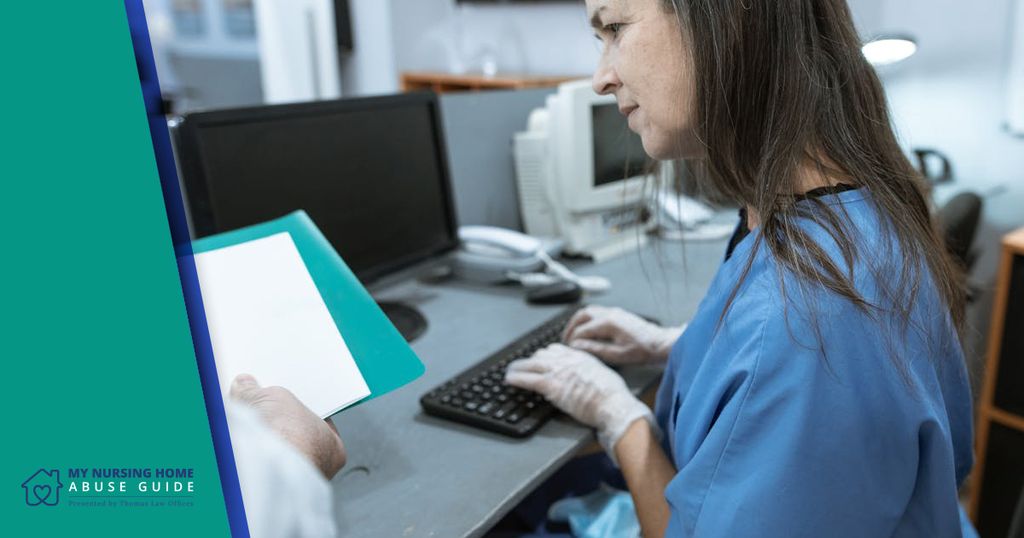Your Guide to Nursing Home Abuse & Prevention
Millions of elderly adults live in nursing home facilities.
Every one of them deserves to feel safe, protected, and respected.
Millions of elderly adults live in nursing home facilities.
Every one of them deserves to feel safe, protected, and respected.

It is an act of trust when your family decides to support a loved one by transitioning them to a long-term nursing home facility. You are putting your trust in the nursing home staff to provide around-the-clock care. That could mean that several staff members will be interacting with your loved one throughout the day and night.
Before admittance, each nursing home resident should have a care plan prepared for them that details what medications they take, if they have mobility issues, or are suffering from dementia. That plan will be shared with all the staff who interact with the residents. It is similar to a patient’s chart in a hospital.
A new person who comes onto a shift should be able to access that care plan and carry it out.
What happens if one of those staff members lacks proper training to implement a care plan? Could that lead to instances of nursing home abuse?
Every job requires a certain level of training. Some of that training is considered “on-the-job training.” That means you learn by doing.
However, nursing home staff can’t rely on that type of training. They must be fully prepared to meet the needs of residents from the moment they clock in for a shift. The only “on-the-job training” comes from adapting to an individual resident’s personality.
How can an undertrained staff member impact your loved one’s care? Consider the following:
Inadequate training does not fully prepare a staff member to assist a resident with mobility challenges in and out of bed or a chair. That can lead to a fall that causes injury.
Not every staff member will have a nursing degree, but they should be familiar with recognizing the signs of medication side effects. For the staff members who do have certified medical training, they also need to understand how to get medication.
If a staff member does not follow proper cleaning protocols, it can lead to infection risks, including flu and other viruses, which can be especially harmful to an elderly resident.
If a staff member makes poor nutrition planning choices for the resident, it can lead to malnourishment and dehydration. It is also important to note that some residents might also have issues with drinking or eating that require assistance. Staff members need to recognize that and provide the relevant support.
As with a hospital patient chart, each nursing home resident has an active record of their condition. Those records need to be constantly updated on every shift. If a staff member does not make notations of changes in a resident’s condition, the staff who take over might not be aware of the change, and that can lead to health complications.
Improper training is not the only issue that has led to instances of nursing home abuse. There are additional factors that you have to be aware of and constantly monitor as part of your role as primary caregiver for your loved one:
Many nursing homes suffer from an understaffed workforce. This is an industry with a high turnover rate. As a result, staff members could put in notice and quit the job before there was a properly trained replacement. If there is a staffing shortage, it means the staff working will be stretched thin to cover the needs of all the residents.
This can lead to rushing through care or skipping essential tasks, such as changing bedding or practicing personal hygiene. Those can all lead to abuse.
Many nursing homes are privately owned. As such, they are concerned about the bottom line and are striving to be profitable. That can lead to pay cuts or lower pay for staff members.
If a staff member feels as though they are underpaid and undervalued, they may be less inclined to provide high levels of care. It is hard to imagine, but they could just provide the bare minimum, which can lead to carelessness and injury.
If you suspect that your loved one has suffered from any type of abuse, you have options. Your first priority is to report your concerns to the facility, in the hope that they can rectify the situation.
There are also state and local agencies that oversee nursing home facilities, which can step in to inspect and address staff issues.
You’re also entitled to seek legal advice from a qualified attorney specializing in nursing home abuse.
The lawyers who specialize in these types of cases will be in the best position to provide you with the information and guidance you need to decide the best course of action to seek a remedy. Nursing home abuse needs to be corrected immediately, regardless of the cause.
Don’t wait to ask for help. My Nursing Home Abuse Guide has the resources to get you started with the process.
This website was created and is maintained by the legal team at Thomas Law Offices. Our attorneys are experienced in a wide variety of nursing home abuse and neglect cases and represent clients on a nationwide level. Call us or fill out the form to the right to tell us about your potential case. We will get back to you as quickly as possible.
866-351-2504